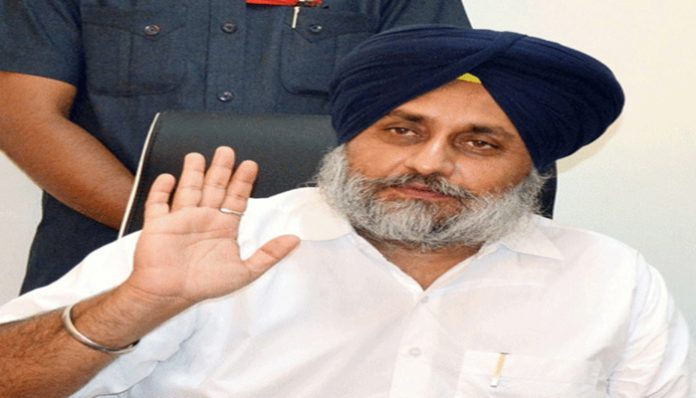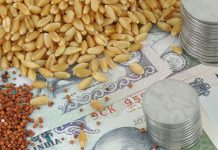
Terms the step as anti-farmer, says instead of such bans govt should hike paddy msp to aid food security needs of the country
Chandigarh : Shiromani Akali Dal (SAD) president today asked the union government to review its ban on the export of broken rice as well as remove duties put on the export of non-basmati rice, saying this would have an adverse impact on farmers and deprive them of reaping the benefits of high export prices of food grains.
In a statement here, the SAD President said the export ban as well as 20 per cent duty put on the export of non-basmati rice to make its export unviable were anti-farmer steps and should be addressed immediately.
Sukbir Badal said earlier farmers had been denied the benefits of an increase in wheat prices globally with the central government banning wheat export in May. “Farmers then desperately needed higher prices to offset the loss in yield because of the high presence of shriveled grain due to early onset of heat wave. Now when farmers stand a chance of reaping the benefits of high international rice prices the government has banned export of broken rice besides imposing exorbitant duties.
This time too farmers face a decrease in paddy yield due to high prevalence of Southern black-streaked dwarf virus (SRBSDV)”. Asserting that the centre should not penalize farmers, Badal said instead of putting restrictions on exports, the government should hike minimum support price (msp) of paddy which would lead to increased government purchase and aid the food security needs of the country.
The SAD President also asserted that contrary to projections, rice prices only accounted for a two per cent of rise in the consumer price index last month and its prices should not be decreased forcibly. “Inflation in India is being driven by the high prices of petrol and diesel as well as vegetables and it these two issues which should be addressed”. Badal also asserted that a deliberate attempt to reduce paddy prices in the open market in the country was also against the centre’s resolve to double farm income by next year.
Stating that a fall in demand of rice would have a negative spiral impact on the entire economy, Badal said farmers and farm labourers would be the worst sufferers even though the entire economy would bear the effect of negative growth in the agriculture sector. He said in the case of Punjab, the agriculture sector was already in a state of crisis with farmers suffering losses due to low yield of paddy even as rains damaged both the paddy and cotton crops in the region. “Dwarfing virus in paddy is also set to reduce its yield by fifteen to twenty per cent”. He said in such a situation farmers should be compensated and be allowed to take advantage of favourable prices.






